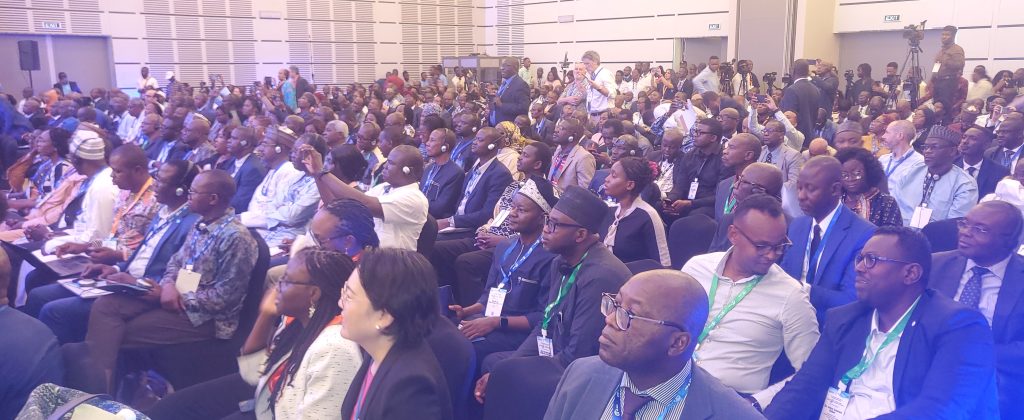By Kodjo Adams/ Eugenia Otenwaa
Accra, April 7, GNA – The establishment of the African Higher Education Centres of Excellence (ACE) has helped to build the capacities of the continent’s universities to develop solutions and innovations to address challenges in Africa and on the global scene.
Genomics researchers in Ghana and Nigeria have played a key role in sequencing the COVID-19 and Ebola genomes, contributing to global efforts to combat these pandemics.
In Ghana and Kenya, agricultural biotechnology breakthroughs have led to the development of improved seeds, enhancing food security and the resilience of the agricultural systems to environmental challenges.
Professor Nana Aba Appiah Amfo, the Vice-Chancellor, University of Ghana, announced this on Monday at a high-level forum to celebrate the 10th Anniversary of the ACE.
Launched in 2014, the ACE initiative is a collaborative effort by African governments, supported by the World Bank and other funding institutions, with a conviction that Africa can and must drive global development.
She said in Senegal, the Centre had developed cutting-edge medical training programmes that had enabled complex surgeries, reducing reliance on overseas treatments, and improving access to specialised care.
“In Nigeria, Senegal, and Rwanda, the integration of artificial intelligence is preparing a new generation of professionals for the jobs of the future,” she said.
“In Tanzania, they’ve developed a digital surveillance tool that allows health workers and others to serve as disease detectives.”

Touching on the impact of the Centre, Prof Appiah Amfo said the Centre had enrolled more than 90,000 students across Africa, including close to 8,000 PhDs and over 30,000 masters.
Currently, about 32 per cent of students enrolled at the ACEs are females due to deliberate attempt to increase female enrolment.
The Centre has 130 of its programmes having obtained international accreditation, including programmes in poultry science, crop seed science and technology, molecular cell biology of infectious diseases, and water supply and treatment technology.
Its activities had led to improved linkages with industries and communities with stronger collaborations among them.
Prof Appiah Amfo said Ghana hosted the second highest number of African centres of excellence, contributing to the research and innovations of the country, the region, and the world at large.
The Africa Centre of Excellence for Coastal Resilience at the University of Cape Coast had trained young African scientists to develop integrated solutions to address coastal degradation in coastal countries on the continent, she said.
The West African Centre for Water Irrigation and Sustainable Agriculture at the University of Development Studies undertakes cutting-edge research and training in irrigation, drainage, water resources management, sustainable agriculture, climate change, environmental sustainability, food and nutrition security.
She called for political will, domestic financing, and policy support from African governments to enable the centres of excellence to operate at their optimum.
Mr Haruna Iddrisu, the Minister of Education, called for support from the World Bank as the Government intended to launch the sanitary pad initiative of supporting young girls who suffered from absenteeism because of their inability to afford it.
He said African leaders should look at a new centre of excellence that focused on foundational learning.
The World Bank could look into an Africa centre of excellence in youth empowerment and youth development to address the growing unemployment, including graduate unemployment.
Mr Iddrisu assured of the government’s commitment to higher education and research, saying for the first time, they would operationalise the national research fund with a dedicated five million dollars.
He said President Mahama had directed that every public university in Ghana would have dedicated funding from the Ghana Education Trust Fund to support five PhDs locally to build faculties.
“We want to assure heads of institutions that the government has no intention to interfere with the academic freedom of our universities, and we work to enhance their academic freedom,” he said.
Mr Ousmane Diagana, the Regional Vice President, Western and Central Africa, World Bank, said the bank was motivated to support the Centre to foster world-class education in Africa.
Democracy, he stated, could not survive if it failed to create equal opportunities for the citizens.
He said education played a key role in driving that transformation, calling on African leaders to invest in the sector for sustainable growth.
GNA
ABD